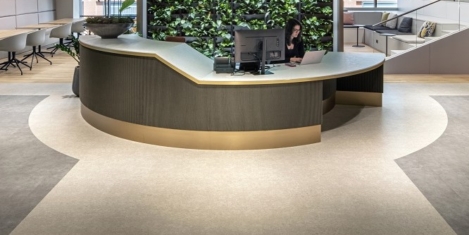To provide the best experiences, we use technologies like cookies to store and/or access device information. Consenting to these technologies will allow us to process data such as browsing behaviour or unique IDs on this site. Not consenting or withdrawing consent, may adversely affect certain features and functions.
The technical storage or access is strictly necessary for the legitimate purpose of enabling the use of a specific service explicitly requested by the subscriber or user, or for the sole purpose of carrying out the transmission of a communication over an electronic communications network.
The technical storage or access is necessary for the legitimate purpose of storing preferences that are not requested by the subscriber or user.
The technical storage or access that is used exclusively for statistical purposes.
The technical storage or access that is used exclusively for anonymous statistical purposes. Without a subpoena, voluntary compliance on the part of your Internet Service Provider, or additional records from a third party, information stored or retrieved for this purpose alone cannot usually be used to identify you.
The technical storage or access is required to create user profiles to send advertising, or to track the user on a website or across several websites for similar marketing purposes.
 A new research project from ESMT Berlin and Warwick Business School sets out to find what the history of NASA history can teach organisations about strategic agility, and how organisations can adapt their business models effectively to cater to external challenges. To shed light on how strategic agility is achieved, the study follows NASA’s successful shifts to three different strategic alignments over the past 60 years. More →
A new research project from ESMT Berlin and Warwick Business School sets out to find what the history of NASA history can teach organisations about strategic agility, and how organisations can adapt their business models effectively to cater to external challenges. To shed light on how strategic agility is achieved, the study follows NASA’s successful shifts to three different strategic alignments over the past 60 years. More →











 Mark Eltringham is joined for a glass of red wine (or two) by Esme Banks-Marr of BVN architects and Jo Sutherland of Magenta. They discuss the joys of shared space, when people should tell AI to FO, the limits of workplace design, how to create a great culture wherever people work and much more.
Mark Eltringham is joined for a glass of red wine (or two) by Esme Banks-Marr of BVN architects and Jo Sutherland of Magenta. They discuss the joys of shared space, when people should tell AI to FO, the limits of workplace design, how to create a great culture wherever people work and much more. 
 According to
According to 
 Office workers now spend more time in the office, with the average creeping up to three and a half days per week compared to
Office workers now spend more time in the office, with the average creeping up to three and a half days per week compared to 






 Nothing beats in-person meetings, but tech is vital for hybrid working trust and equality. That is the main conclusion of a new report from
Nothing beats in-person meetings, but tech is vital for hybrid working trust and equality. That is the main conclusion of a new report from 



















November 24, 2023
The final word on… workplace trends
by Mark Eltringham • Comment, Flexible working, Workplace design